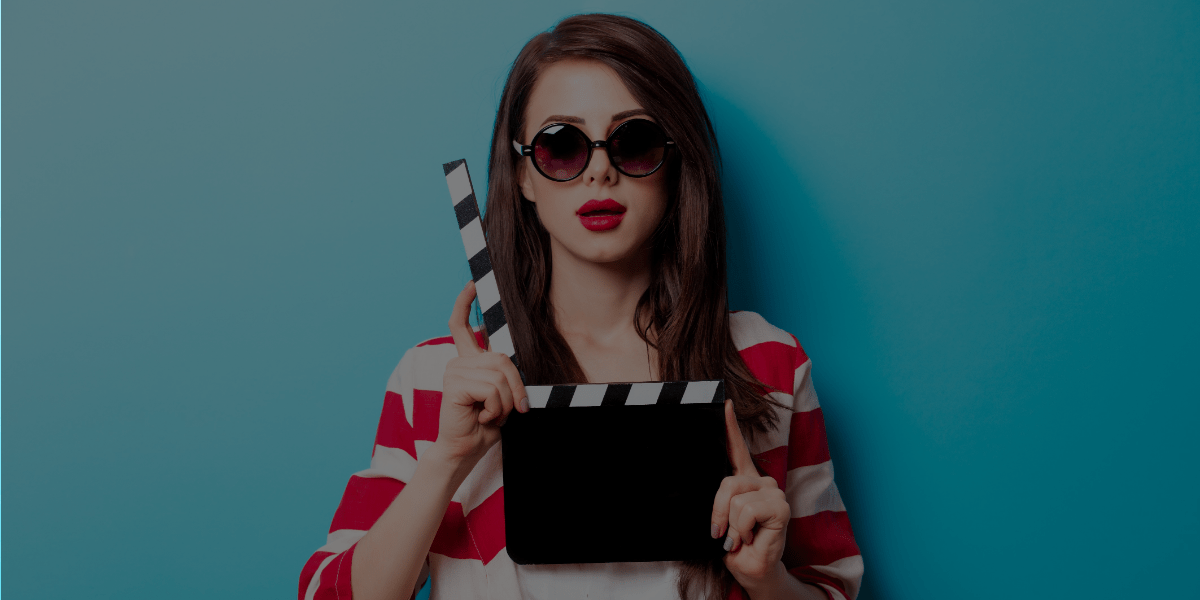Makeup has played a huge part in the entertainment industry for decades, transforming actors into their characters. However, not all makeup is created equal. While film and stage makeup may seem similar at first glance, there are significant differences that make each type unique.
Not to worry though, we’ll go over the differences between film and stage makeup in this article. So, whether you’re a makeup enthusiast or a professional, read on to discover the art of transformation and how it differs between film and stage productions.
Keep reading to learn the differences between these two makeup mediums…
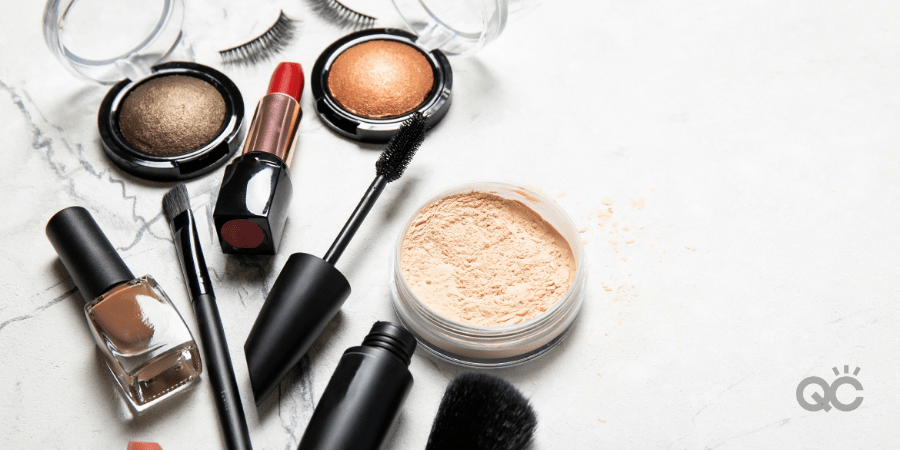
What is Film and Television Makeup?
Film makeup, also known as cinema or movie makeup, is specifically designed to be worn in front of a camera. Its primary purpose is to enhance the actor’s features and make them look flawless on screen. Unlike stage makeup, which needs to be seen from a distance, film makeup focuses on details that are magnified by high-definition cameras.
Techniques Used in Film and Television Makeup
To achieve a seamless appearance on camera, film makeup artists use various techniques and products. The most common ones include:
- Contouring: This technique involves using darker shades to create depth and dimension and lighter shades to highlight specific areas of the face.
- Airbrush Makeup: A popular technique in film makeup, airbrushing involves using a spray gun to apply foundation, creating a smooth and even finish.
- Special Effects Makeup: This type of makeup is used to create dramatic transformations or add realistic-looking wounds, scars, and other features to the actor’s face.
Best Film and Television Makeup Practices
This is a competitive field for aspiring makeup artists. To stand out, you will need to ensure you are following best practices. You can start by considering some of the factors below.
Current Television and Film Makeup Trends and Techniques
Staying updated with current trends and techniques in film and television makeup is part of being a makeup artist. Understanding these trends allows artists to create looks that resonate with today’s audience while also meeting the needs of each production. Continuous education through workshops, online tutorials, and networking with industry professionals can help artists refine their skills and maintain a competitive edge in a dynamic field.
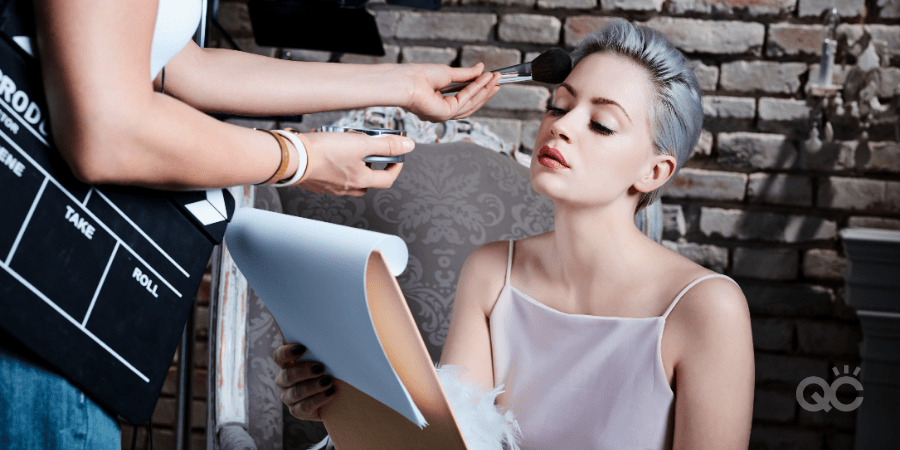
Working Well Under Pressure
Working under pressure while maintaining precision and attention to detail is a vital skill for makeup artists in the fast-paced world of film and television. Tight schedules and last-minute changes can create stressful environments, but the ability to stay calm and focused is key to success. This involves not only excellent time management but also the capacity to adapt quickly to new challenges without compromising the quality of work. A strong mindset and thorough preparation can help artists thrive under these conditions, ensuring that they deliver outstanding results even when the stakes are high.
Tools for Television and Film Makeup?
Having the right tools is crucial for achieving a natural-looking appearance on camera. This includes high-quality makeup products that suit various skin types, as well as essential tools like brushes, sponges, and palettes.
Investing in the right equipment ensures that you are consistently creating high-quality looks. This is because it allows makeup artists to effectively execute their vision, adapting to different lighting and camera conditions.
The products and techniques a makeup artist should use when creating looks for film and television require a light hand. You’re only going to want to use products that have been professionally made for HD (high definition).
You want to create looks that are more natural and pick up well when on camera. Regular makeup products won’t be as reliable in helping you achieve this.
Top Makeup Products for Film and Television Makeup
- HD foundations and concealers
- Airbrush liquid foundation
- Creme blushes
- Neutral colored lip liners / lipsticks / lip tints
- Loose, translucent setting powder
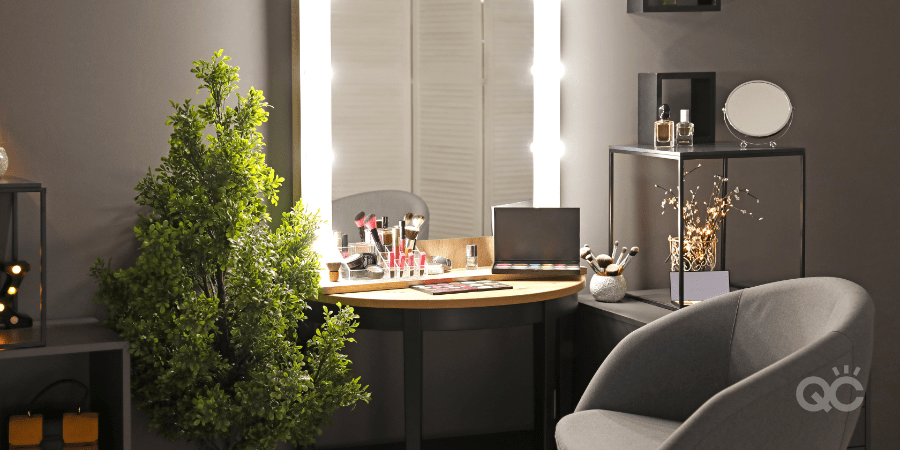
What is Theatrical and Stage Makeup?
Unlike film/TV makeup, which should look “natural” and lightweight, theatrical and stage makeup requires the opposite approach. This is because heavier products and bolder looks are needed.
When you watch a play or live performance, you can’t rely on cameras to zoom in on the actors’ faces and illustrate the tiniest details. Often, you’re sitting in a rather large theater space. The further away you are from the stage, the harder it is to see the actors’ faces.
Theater/stage makeup aims to compensate for this by offering exaggerated looks and features. This way, the makeup can be seen from all the way to the back of the room! In these types of settings, the lighting used also tends to be quite harsh, in order to properly illuminate the entire set. If the makeup is too natural or subtle, this can also alter how the performer looks altogether!
Techniques Used in Stage Makeup
To achieve a bold and dramatic look that can be seen by the audience, stage makeup artists use techniques such as:
- Heavy contouring: Stage lighting can wash out facial features, so heavy contouring is necessary to add depth and dimension to the actor’s face.
- Bright and bold colors: Unlike film makeup, stage makeup uses vibrant and exaggerated colors to make the actor’s features stand out on stage.
- Stylized character makeup: In some cases, stage productions call for stylized and exaggerated character makeup, such as in musicals or fantasy plays. These types of makeup usually involve intricate designs and detailed prosthetics.
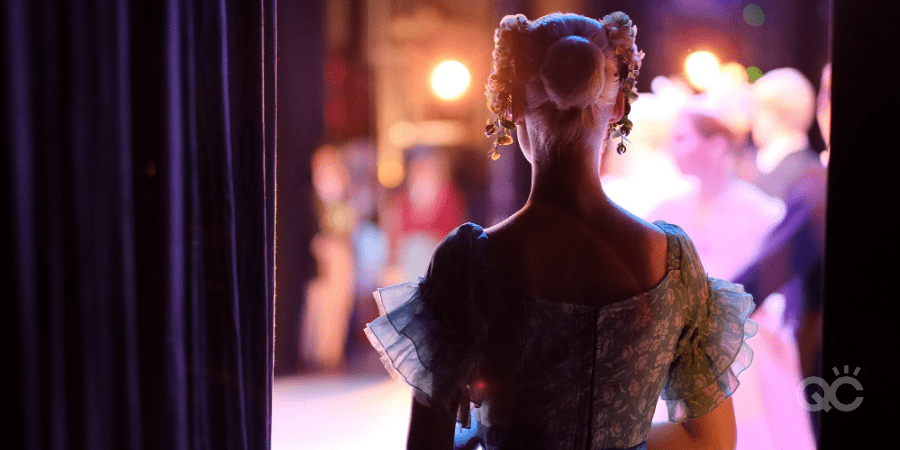
Best Stage Makeup Practices
Stage makeup is all about creating dramatic looks that can be seen by an entire audience. To achieve this, here are some best practices to keep in mind.
Know Your Lighting and Set Design
Understanding the lighting and set design of each production is crucial for applying stage makeup effectively. Different lighting setups require different color choices and application techniques. Additionally, knowledge of the set design helps artists choose colors and styles that complement the overall aesthetic of the performance.
Take Audience Viewing Distance into Account
When applying stage makeup, it’s essential to consider the distance between the audience and the stage. Makeup needs to be visible from all angles, so techniques like heavier application and bright colors are often used. It’s also crucial to keep in mind that different parts of the stage may have varying lighting and viewing distances, requiring adjustments in makeup application.
Collaborate with Costume Designers
Makeup is an integral part of any performance, but it should also work together with other elements, such as costumes. Collaborating with costume designers can help ensure that both aspects complement each other and create a cohesive look for the production. This involves discussing color schemes, overall themes, and ensuring that the makeup reflects the character’s personality and role.

Top Makeup Products for Stage Makeup
For this medium, you’d be best off using proper makeup products, specifically made for the stage. These products are specifically crafted to be able to endure harsher conditions while remaining vibrant.
Some of the most commonly used brands for theatrical and stage makeup include:
- Cake foundations and/or creme foundations that offer very build-able coverage
- Cake eyeliners
- Bold fake eyelashes
- Creme blushes that allow you to build up vivid colors
- Ben Nye setting powder
- Ben Nye “Final Seal” setting spray
(That last one is a true Holy Grail item, by the way!)
Key Differences between Film and Stage Makeup
While both film and stage makeup have similar purposes – transforming actors into their characters – they differ in many ways:
- Intensity: Film makeup is more subtle and natural-looking, while stage makeup is more intense and dramatic.
- Application techniques: Film makeup uses airbrushing and other precise techniques, while stage makeup relies on heavy contouring and bright colors for visibility on stage.
- Lighting: Film makeup needs to withstand close-ups under high-definition lighting, while stage makeup must be visible from a distance under bright stage lights.
- Time constraints: Actors in films can pause and touch up their makeup between takes, whereas stage actors need long-lasting and durable makeup that can withstand an entire performance without touch-ups.
- Overall effect: While both types of makeup aim to transform the actor into
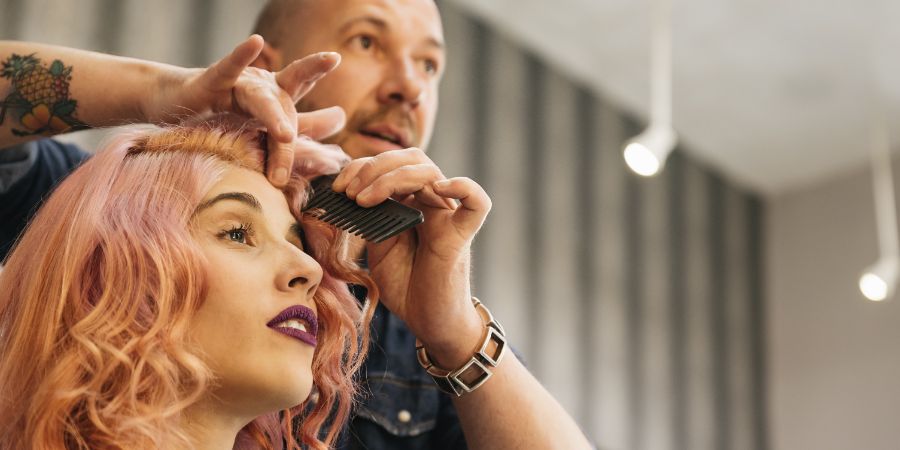
Starting a Career in Makeup for the Entertainment Industry
If you’re interested in pursuing a career in film and television makeup, stage makeup, or both, here are some steps you can take to get started:
- Develop your skills: Start by practicing different makeup techniques on yourself and others. Consider taking classes, such as the Special Effects Makeup course offered by QC Makeup Academy, to improve your skills and learn about the latest trends and techniques.
- Build a portfolio: Assemble a portfolio of your work to showcase your skills and versatility as a makeup artist. This will be essential when applying for jobs or seeking clients.
- Network: Learn how to network as a makeup artist. Attend industry events, connect with other professionals in the field, and build relationships within the entertainment industry. These connections can lead to opportunities for work.
- Gain experience: Look for volunteer or internship opportunities to gain experience and build your resume. This will also allow you to network and make connections in the industry.
- Stay updated: Continuously educate yourself on current trends and techniques through workshops, classes, and online resources. This will help you stay competitive in a constantly evolving industry.
By following these steps and consistently honing your skills, you can establish a successful career in makeup for the entertainment industry. Remember to always stay passionate, creative, and open-minded as you navigate this exciting field.
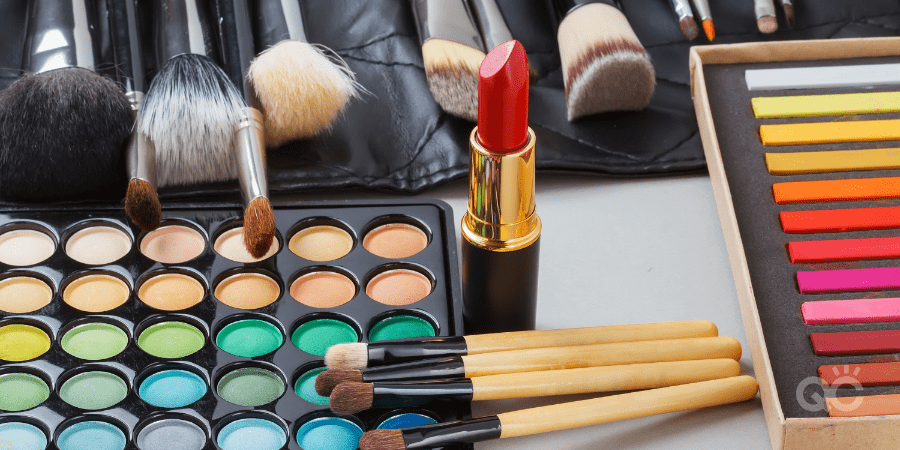
Frequently Asked Questions
Q: How is stage makeup different from regular makeup?
A: Stage makeup is designed to be seen from a distance and must be more intense and exaggerated in order to stand out under bright stage lights. Regular makeup, on the other hand, aims for a natural appearance.
Q: How does television makeup differ from regular makeup?
A: Television makeup needs to withstand close-ups under high-definition lighting, so it often involves highly precise techniques such as airbrushing. Regular makeup typically focuses on enhancing natural features without the need for high-definition adjustments.
Q: Can I use the same products for both film/television and stage makeup?
A: While some products may overlap, it’s important to use specific products and techniques for each type of makeup. For example, stage makeup typically needs to be more long-lasting and durable, while film/television makeup requires a more natural finish that can withstand high-definition cameras.
Q: Are there any specific tips for creating cosplay makeup looks?
A: Yes, for cosplay makeup, it’s important to consider the character’s design and features and use products and techniques that will help bring those elements to life. This may involve using prosthetics, body paint, or special effects makeup. It’s also helpful to research tutorials or seek guidance from experienced cosplayers or makeup artists. Overall, creativity and attention to detail are key to achieving a successful cosplay makeup look.
Q: What is the best way to remove stage/film/television makeup?
A: For stage/film/television makeup, which tends to be heavier, an oil-based cleanser or makeup remover designed for strong makeup can be effective. Following up with a gentle facial cleanser and moisturizer is crucial to cleanse and nourish the skin. Overall, find a removal routine that suits your skin type and preferences.
